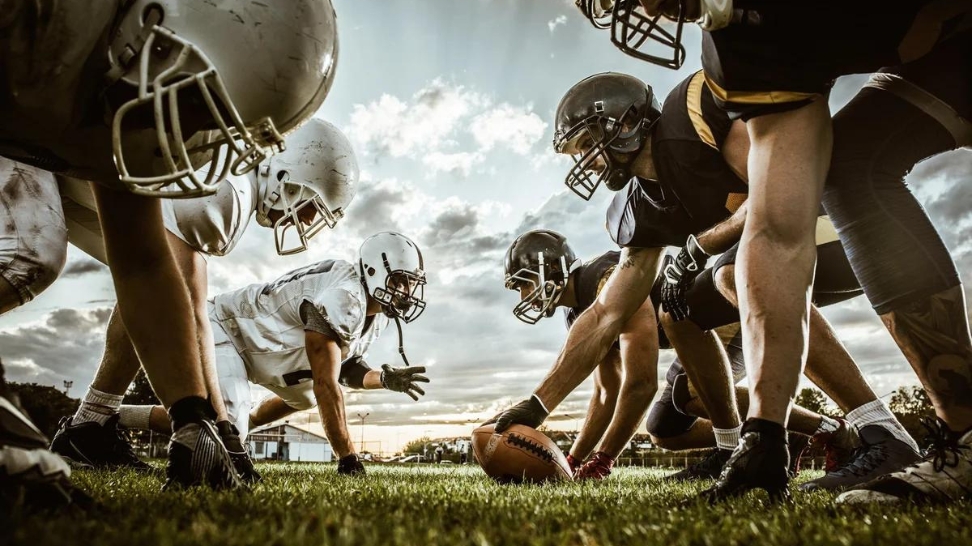Professional athletes, like anyone with significant wealth, can benefit greatly from implementing asset protection strategies. In addition to their significant income, professional athletes often enjoy widespread fame and recognition, which could be an additional risk factor for potential legal disputes. Asset protection uses a combination of legal and financial strategies aimed at safeguarding an individual’s assets from potential threats, such as lawsuits, divorce, creditors, and other legal risks.
Why Asset Protection is Crucial for Professional Athletes
While it can be difficult or impossible to predict the event that could give rise to a legal battle, the truth is that high-net-worth individuals and families face an increased risk, and professional athletes are no exception. Unfortunately, many fail to consider asset protection strategies until it is already too late, but this doesn’t have to be the case. Here are some of the main risks facing professional athletes that should make them consider asset protection:
- Lawsuits: Professional athletes, especially those in high-contact or high-risk sports, face a higher likelihood of personal injury lawsuits. If an athlete is found liable for injuries sustained by another party during a game, practice, or personal activity, they could be at risk of losing significant assets. Asset protection strategies can help shield an athlete’s wealth from these types of litigation.
- Creditor Protection: Athletes often receive substantial incomes from contracts, endorsements, and other revenue streams, making them appealing targets for creditors. Especially if they run into financial difficulties. Asset protection measures can help safeguard these assets from potential claims by creditors.
- Divorce: Like anyone else, athletes, may go through divorces. Divorce proceedings can have a substantial impact on an individual’s financial situation. Proper asset protection can help protect assets acquired before or during marriage and minimize the potential loss of wealth in a divorce settlement.
- Business Ventures: Many athletes invest in businesses, start their own companies, or engage in various entrepreneurial ventures. Asset protection can help protect these business interests from personal financial liabilities, ensuring that personal assets remain separate from business assets.
- Estate Planning: Effective asset protection can be a part of a comprehensive estate planning strategy ensuring their hard-earned assets are distributed according to their wishes.
Real-World Examples of Financial Pitfalls
Unfortunately, cases where professional athletes have suffered major financial losses due to legal troubles are fairly common, with numerous professional athletes having faced financial troubles and, in some cases, lost a significant portion of their wealth. These cases are often reported in the news or sports media, but behind the press coverage are real legal risks that oftentimes could have been prevented or mitigated with careful planning.
Here are a few examples of professional athletes who encountered financial difficulties due to legal disputes:
- Tom Brady: In 2021, Tom Brady, the renowned NFL quarterback, and the cryptocurrency exchange FTX announced a partnership. Tom Brady became an ambassador for FTX, giving the now-defunct exchange major recognition. The partnership was seen as a significant move in the world of sports and cryptocurrency as it marked one of the highest-profile endorsements of a cryptocurrency platform by a professional athlete. Tom Brady’s involvement with FTX involved promotional activities and educational content about cryptocurrency and blockchain technology. The partnership was considered a way to increase awareness and acceptance of cryptocurrencies among mainstream audiences as professional athletes like Tom Brady often have a broad and influential fan base. As compensation, Tom Brady received an equity stake in FTX, making him a co-owner of the company. FTX paid Brady $30 million, mostly in the company’s stock. After the company collapsed, the stock became worthless, and Brady lost most of what he had received in payment from FTX, facing a possible lawsuit from FTX investors.
- Mike Tyson: The former heavyweight boxing champion earned hundreds of millions of dollars during his career but filed for bankruptcy in 2003, citing debts of around $23 million. Mike Tyson has been involved in several lawsuits throughout his life and career. The legal issues and financial setbacks Tyson faced were a significant turning point in his life and career. While he eventually returned to professional boxing and continued to earn substantial sums of money, his legal troubles and financial losses during that period were a significant chapter in his life. His financial troubles were also exacerbated by extravagant spending and mismanagement of his earnings.
- Manny Pacquiao: The boxing legend was involved in multiple lawsuits including defamation cases, contract disputes, and tax issues. Manny Pacquiao has been involved in legal disputes related to business contracts, including promotional agreements and endorsements. These disputes often revolved around financial matters and contractual obligations. For example, legal battles between Pacquiao and his former promoter, Top Rank, revolved around financial matters and contractual obligations. Like many professional athletes, Manny Pacquiao has faced lawsuits related to injuries sustained during his boxing matches. These lawsuits are often filed by opponents who claim to have been inappropriately injured by Pacquiao during a fight. Pacquiao has also faced legal issues related to taxes in both the Philippines and the United States. He faced accusations of not paying the appropriate taxes on his earnings, which resulted in legal and financial repercussions. These legal battles led to significant financial losses and major legal expenses.
- Lance Armstrong: The former professional cyclist was involved in a protracted legal battle related to doping allegations. He was stripped of his seven Tour de France titles and faced numerous legal actions, including a lawsuit by the U.S. government to recover funds received by his team, which eventually led to a significant financial settlement.
- Derrick Rose: The NBA player faced a lawsuit alleging sexual assault, and though he was eventually found not liable, the proceedings resulted in legal expenses and negative publicity.
- Ryan Lochte: The Olympic swimmer faced legal and financial consequences after falsely reporting a robbery during the 2016 Rio Olympics. This incident led to endorsements being dropped and legal fees.
- Dwight Howard: The NBA player has faced various legal issues including child custody battles, defamation claims, and disputes with former agents. These legal matters have involved legal fees and major financial setbacks.
Of course, these examples are not representative of all professional athletes, as many successfully manage their finances and take steps to protect their investments. Nonetheless, they serve as cautionary tales about the importance of proper legal and financial planning for professional athletes and other individuals.
Asset Protection Strategies for Athletes
While there is no surefire way to prevent a legal dispute from taking place, there are several things that professional athletes and others can do to ensure that if a legal issue ever arises, their wealth is better safeguarded. Some of the most common asset protection strategies for professional athletes include:
- Asset Protection Trusts: Creating these types of trusts, such as irrevocable trusts or offshore asset protection trusts, can help protect assets from creditors and legal judgments.
- Limited liability companies (LLCs): Athletes can use LLCs and other corporate structures to separate personal assets from business assets, reducing the risk of personal liability for business-related matters.
- Insurance: Adequate insurance coverage, including umbrella insurance, can be a crucial component of asset protection.
- Retirement accounts: Qualified retirement accounts, like 401(k)s and IRAs, often enjoy protection from creditors.
- Gifting and estate planning: Transferring assets to family members through gifting and other estate planning strategies can protect the assets from various financial threats.
Advantages of Offshore Asset Protection Trusts
Offshore asset protection trusts offer the highest level of legal protection and provide a range of benefits to individuals looking to safeguard their wealth from potential threats, including lawsuits, creditors, divorce, and other financial risks. These trusts are a legal and financial strategy that can provide several advantages. One of the primary benefits of asset protection trusts is shielding assets from creditors.
These trusts can make it more challenging for creditors to access your assets, offering a layer of protection in the case of financial difficulties, lawsuits, divorce, or other claims. Asset protection trusts can be effective tools for protecting wealth from personal injury lawsuits, business-related lawsuits, and other legal matters. This can be especially valuable for individuals in high-liability professions.
In some cases, asset protection trusts can help maintain a level of privacy by keeping personal financial affairs out of the public record. This can be beneficial for those who prefer to keep their matters confidential. Depending on the jurisdiction and type of trust, asset protection trusts can offer varying degrees of flexibility, allowing the tailoring of the trust to match specific needs and financial goals.
Importance of Timely Financial Planning
Professional athletes often have relatively short careers, which makes protecting and managing their wealth even more crucial to ensuring long-term financial security. Engaging the services of an experienced asset protection attorney can help athletes create a customized plan that aligns with their financial goals and needs while helping protect their wealth from a variety of legal threats.
Asset protection trusts are often used as part of long-term financial planning, helping to secure assets for retirement and beyond, benefiting many who utilize these strategies to mitigate potential risks and ensure the preservation of their wealth. Ultimately, whether professional athletes need asset protection depends on their specific financial situation, risk tolerance, and individual goals.
Safeguarding Wealth for a Secure Future
It’s important to note that asset protection strategies should be implemented in a legally sound and principled manner. If you’re interested in asset protection, contact Blake Harris Law today to speak with an experienced asset protection attorney about your options. Knowing that your assets are protected can provide peace of mind, reducing stress and anxiety related to potential legal threats.




